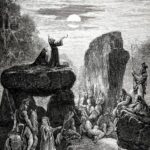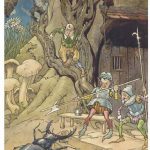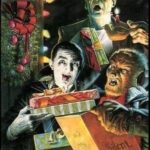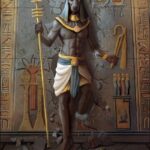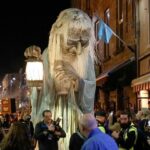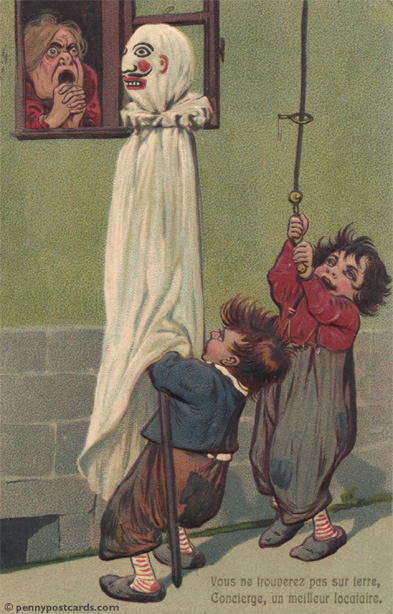
The word Hallowe’en [/ˌhæl.əʊˈiːn/] comes from the Scottish expression Allhallow-even used for the very first time in the 16th century shortened from All-hallow-even, as it is the evening before “All Hallows’ Day” (also known as “All Saints’ Day”).
The date Oct. 31 is described as alle halwe eue by c. 1300. Hallow-day for All-Saints Day is from 1590s; earlier was halwemesse day (late 13c.). Hallowtide (15c.) was the first week of November.
Hallow is an archaic form of English referring to saints, coming from the Anglo-Saxon term haliga, halga which means saint, sanctify or consecrate. Even refer to the evening before and is contracted to e’en or een.
In Ireland, the name was All Hallows’ Eve (often shortened to Hallow Eve), and though seldomly used today, it is still a well accepted label. Halloween was also sometimes called All Saints’ Eve.
There are also some scholars who link Halloween to Old English hel or hell which derives from the Proto-Germanic feminine noun haljō- ‘concealed place, the underworld‘.
Hel being the name of the Norse Goddess of the underworld as well as her kingdom.
Halloween is also called Pooky or Punky Night in some parts of Ireland, presumably named after the púca, a mischievous spirit. Another name associated to Halloween is Mischief Night.


